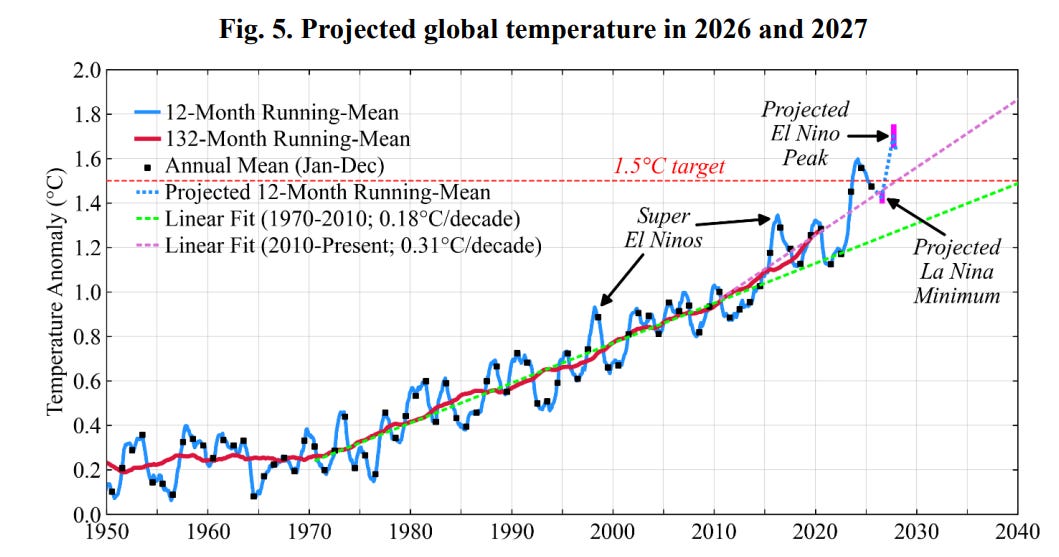Today, the Nobel Prize in Economics was awarded to Joel Mokyr (Northwestern University), Philippe Aghion (London School of Economics), and Peter Howitt (Brown University) “for having explained innovation-driven economic growth.” This follows a recent trend for the Committee to award to economics focused on economic growth, following Acemoglou, Johnson, and Robinson in 2024 and Kremer, Duflo, and Banerjee in 2019. Time and space prevent me from providing a detailed discussion of the ideas behind each prize, but they are all crucial to our understanding of economics.
One of the big mysteries of human history is the so-called “hockey-stick of prosperity.” That is, the fact that, for much of human history, standards of living were virtually unchanged. Very little separated the Roman citizen in 1AD from the British citizen in 1700. But, starting in the 1700s, standards of living skyrocketed.
From 1AD to 1700AD, few changes happened: sails and animal-powered transport dominated, medical science hadn’t advanced much, and machinery was unknown. From 1700 to 1800, changes were beginning: mechanical engines were introduced and the Industrial Revolution began. Between 1800 to 1900, the world went from horse and buggy to steam engines. Between 1900 and 1960, humanity went from automobiles to planes to landing on the moon. Diseases were eradicated, lives were improved. Real poverty fell from around 90% of the global population to less than 10%. Nothing like this had happened before, and it kept happening. Even the most optimistic economists at the time had trouble explaining it.
Enter Mokyr, Aghion, and Howitt. Collectively, their work helped explain why this growth happened, why it happened where it did, and how it is sustainable.
Mokyr argues that the Industrial Revolution and the benefits it provided were no accident of history, but rather the result of institutions. Economic growth arises out of two kinds of knowledge: propositional knowledge (how and why things work) and prescriptive knowledge (practical knowledge of necessary things to get things to work, such as institutions or recipes). These two forms of knowledge work together, building on one another, to create economic growth. For example, economic sciences (propositional knowledge) will tell us where prices come from, how people coordinate their behavior, etc. That understanding, in turn, helps us consider what kind of institutions (prescriptive knowledge) are needed to foster those trends.
Furthermore, the fragmented state of Europe led to the rise of the Industrial Revolution. With various states competing with each other for political dominance, and none particularly large, people could move (or flee) if their ideas were being suppressed. In large unitary nations like China and India (which were of roughly the same technological level as Europe pre-industrialization), ideas were suppressed and people had little option to leave. Because it subverted the suppression of new ideas, the fragmentation of Europe led to greater technological strengths. This trend could sometimes even be observed within states, such as in the British Empire. Scotland was a backwater, mostly ignored by the ruling elite in London post-unification, and yet that is where the Industrial Revolution kicked off.
Mokyr called this the culture of growth (also the name of his excellent 2016 book). Technological innovation is not random, but rather requires a culture that promotes innovation and a market for ideas.
Aghion and Howitt contribute in a different way. Their landmark paper “A Model of Growth Through Creative Destruction” (Econometrica, 60(2)) builds a mathematical model of Joseph Schumpeter’s verbal model of creative destruction. Firms face both a carrot and a stick to innovate. The carrot is the rents they can get for innovations. Through the creative process, they make old technologies obsolete, both eliminating the old technologies and grabbing market share (or rents). The stick comes from the constant threat of others acting the same way: each must innovate to prevent losing rents.
But Aghion and Howitt also uncovered limitations. When the rents become very large, an incumbent firm can create barriers to entry. This reduces the stick from competition. Further, once rents (the carrot) have been secured, there is less incentive for firms to innovate. Differences in firm, market, and legal structures help explain why some industries are highly innovative and others are stagnant.
All three winners explain economic growth through technology and culture (broadly defined). My little overview does not pretend to present the entirety of their work. I highly recommend the Nobel Committee’s overview of their contributions.
Congratulations to Joel Mokyr, Philippe Aghion and Peter Howitt for a well-deserved award!
[1] Please, nobody say “There is no Nobel Prize in Economics. It’s the “Sveriges Riksbank Prize in Economic Sciences in Memory of Alfred Nobel.” We all know.
[2] As an aside, I find the whole space program amazing. A bunch of scientists went to folks like Chuck Yeager and said, “We have an idea: we’re going to take missiles, remove the warhead, bolt on a couple of seats, and fling you at the Moon,” and these pilots said, “Sounds fun! Sign me up.”
As an Amazon Associate, Econlib earns from qualifying purchases.

























